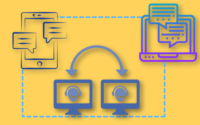
The effects of virtual exchanges on oral skills and motivation
The present study aims to assess the benefits of participating in a virtual language exchange (VE) for practicing oral skills with native speakers by measuring learners’ motivation to learn the language, communicate, and collaborate. The oral language development of advanced learners of English at a Spanish university was compared with a control group from the […]
















